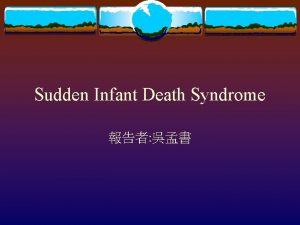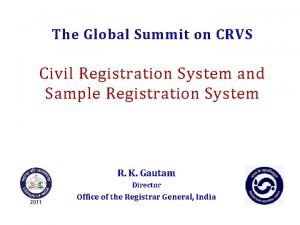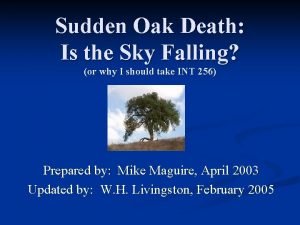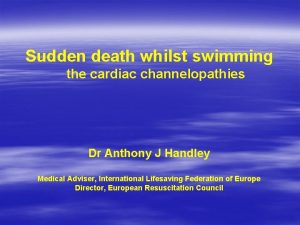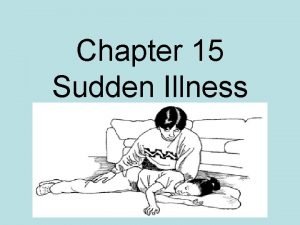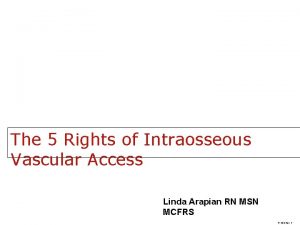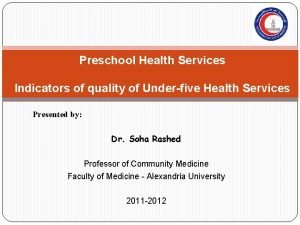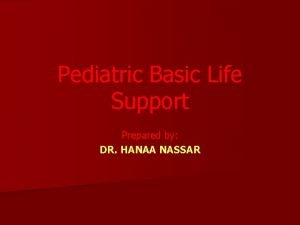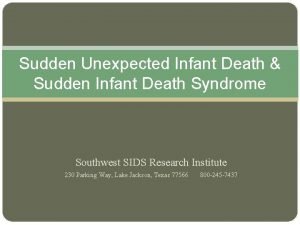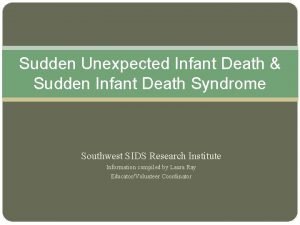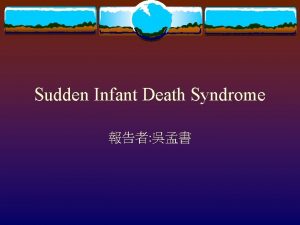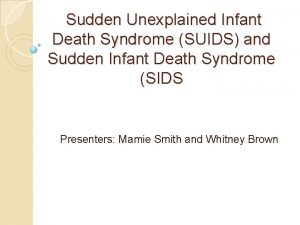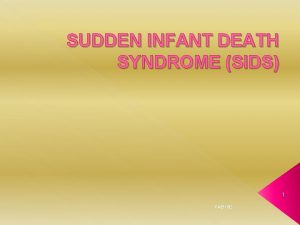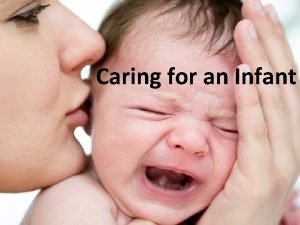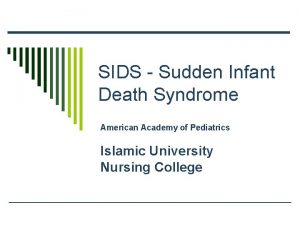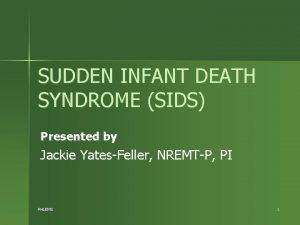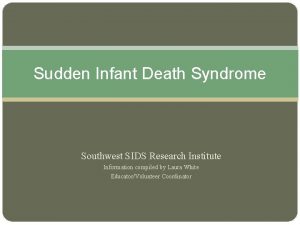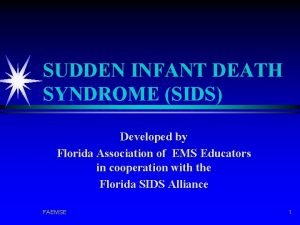Sudden Infant Death Syndrome Definition The sudden death













- Slides: 13

Sudden Infant Death Syndrome 報告者: 吳孟書

Definition The sudden death of an infant under one year of age remains unexplained after a through case investigation, including performance of a complete autopsy, examination of the death scene, and review of the clinical history of the infant and the family. v SIDS was first formally defined in 1969 and the definition was revised in 1989. v Not caused by child abuse, suffocation, aspiration or immunization. v

Apparent Life-Threatening Episode v ALTE characterized by a combination of: Ø Apnea Color change(usually cyanosis but occasionally erythema) Marked change in muscle tone (usually limp) Choking or gagging Ø Ø Ø v v v Ø Ø Ø Severe unexplained apneic episodes during sleeping, requiring vigorous stimulation or resuscitation to terminate the event. Only very small overlap with SIDS. 50% have identifiable cause: Infection Airway obstruction Congenital heart disease Seizure, choking Breath-holding

Description v Predominant age: Rare in first month of life, peak occurs in infants between 2 and 4 months, 80% of death occur by 6 months. v Predominant sex: Male> Female v These babies generally are healthy, or may have had a minor upper respiratory or GI infection in the last 2 weeks of life.

Possible causes Abnormalities in respiratory control and arousal responsiveness v Central and peripheral nervous system abnormalities v Cardiac arrhythmias v Rebreathing in face down position on soft surface leading to hypoxia and hypercarbia v Infection agents v Climatic change v Environmental factors such as hyperthermia or hypo-v

Risk factors v Race v Season- late fall and winter months v Time of day- between midnight and 6 AM v Activity-during sleep v Low birth weight; intrauterine growth retardation (IUGR) v Poverty

Risk factors Maternal factors: teenage mothers; maternal use of cigarettes or drugs(cocaine, opiates) during pregnancy; higher parity; maternal anemia during pregnancy. v Respiratory or GI infection in recent past v Sleep practices- prone and side sleep position, heavier clothing and bedding, soft bedding v Passive cigarette smoke exposure after birth v

Diagnosis v Diagnosis of exclusion v Investigation of the scene of death Ø Ø Where baby was How it was sleeping Who was with it What it was doing v Exploration Ø Ø of medical history Prenatal and perinatal history Baby’s medical history since birth

Diagnosis v Laboratory: Ø Ø Ø Ø CBC/DC ELECTROLYTE LFT TOXICOLOGY SCREEN SEPTIC WORK UP U/A AND TESTS FOR INBORN ERROES OF METABOLISM EKG RADIOLOGICAL SKELETAL SURVEY v Autopsy

AUTOPSY v v v 1) 2) 3) Should be done Helps parents through their grieving process and helps them to understand prevention Nonspecific postmortem findings used to establish the Dx: Retention of periadrenal fat Hepatic erythropoiesis Brain stem gliosis

Treatment Begin resuscitation unless rigor mortis or livedo reticularis are present v According to NALS and PALS guideline v Look for obvious sings of trauma v Parents should not be told that the cause of death is SIDS, if no obvious diagnosis is found at the termination of resuscitation v Allow the family to grieve v Help family to express feeling v

Disposition v Admit all infants who have ALTE for evaluation and monitoring after initial stabilization and resuscitation v Discharge: none

Thanks for your attention!!
 What is sudden infant death syndrome
What is sudden infant death syndrome Crvs institute panel
Crvs institute panel Sudden oak death map
Sudden oak death map Sudden oak death map
Sudden oak death map Sudden death proc
Sudden death proc Cbr definition ap human geography
Cbr definition ap human geography 4 examples of sudden illness
4 examples of sudden illness Hart plain infant school
Hart plain infant school The webinar will begin shortly
The webinar will begin shortly Infant-industry argument
Infant-industry argument Counter clockwise
Counter clockwise Keeping an infant safe and well section 7-3
Keeping an infant safe and well section 7-3 Imr equation
Imr equation Infant cpr algorithm
Infant cpr algorithm
